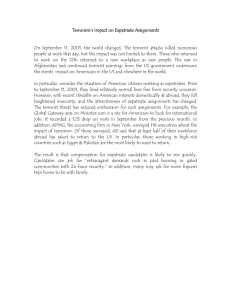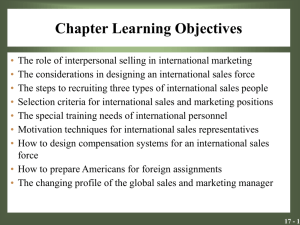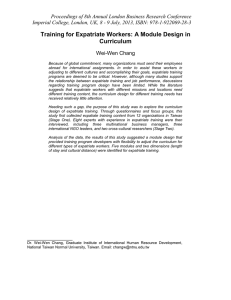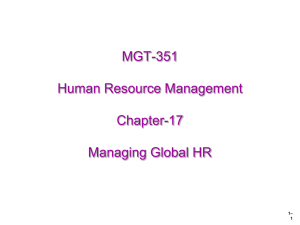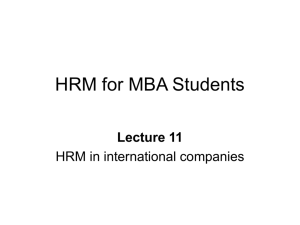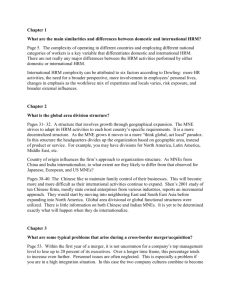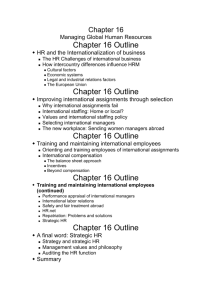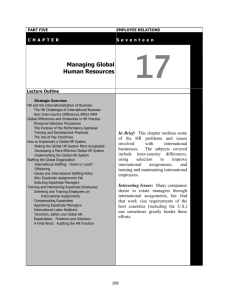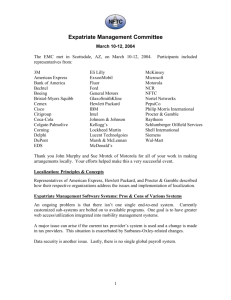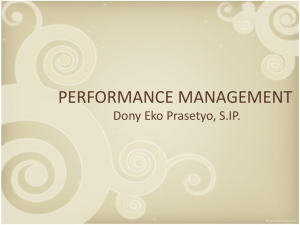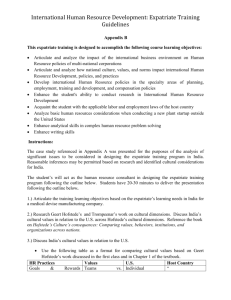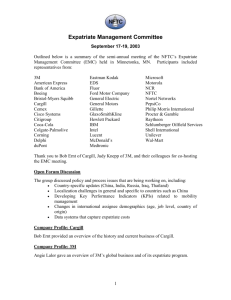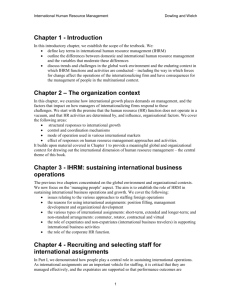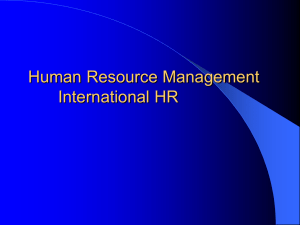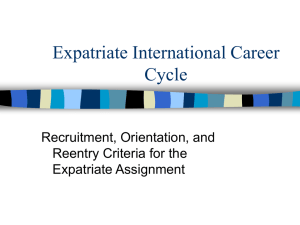International training and development
advertisement
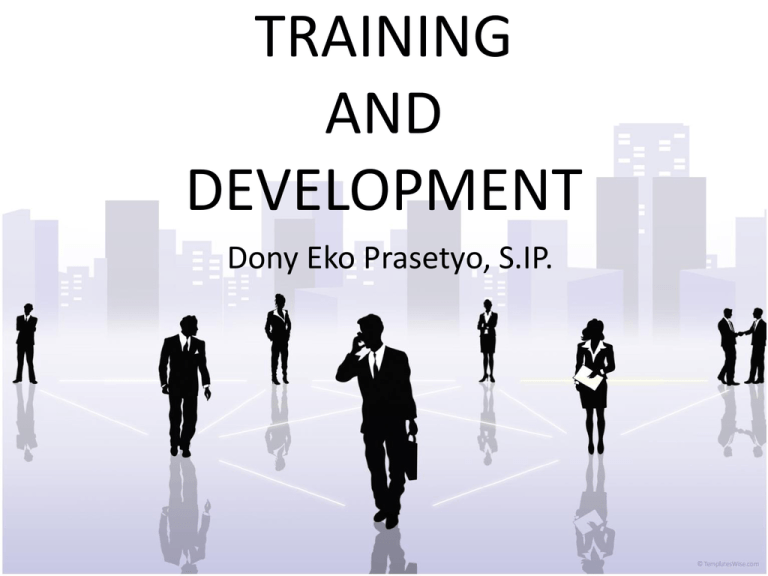
TRAINING AND DEVELOPMENT Dony Eko Prasetyo, S.IP. “Tell me and I forget, teach me and I remember, involve me and I learn” Benjamin Franklin Training and Management Development •Training focuses upon preparing the manager for a specific job •Management development is concerned with developing the skills of the manager over his or her career with the firm •Historically, most firms focus more on training than on management development Training and Management Development • Training for expatriate managers involves obtaining skills for a particular foreign posting – Language training: Can improve expatriate’s effectiveness, aid expatriate in adjusting to foreign culture, and fosters a better firm image – Cultural training: Can foster an appreciation of the host country’s culture and help in expatriate adjustment – Practical training: Can help expatriate and family to ease into day-to-day life of the host country Management Development and Strategy Management development programs for expatriate managers increase overall skill levels by: –ongoing management education –rotations of managers through jobs within the global firm to give them varied experiences •Management development is often used as a strategic tool to build a strong unifying culture and informal management network, both of which are supportive of a transnational and global strategy International assignments as a training and development tool • Expatriates are trainers • Expatriates show how systems and procedures work, ensure adoption, and monitor performance of HCNs • International assignments a form of job rotation – management development 5/9 International training and development 5/10 Components of effective predeparture training • • • • • • • Cultural awareness programs Preliminary visits Language training Practical assistance Training for the training role TCN and HCN expatriate training Non-traditional assignments and training 5/11 The Mendenhall, Dunbar and Oddou cross-cultural training model 5/12 Cultural awareness training and assignment performance 5/13 Language training • The role of English as the language of world business • Host country-language skills and adjustment • Knowledge of the corporate language 5/14 The impact of language and power 5/15 Practical assistance • Information that assists relocation • Assistance in finding suitable accommodation and schooling • Further language training • Makes an important contribution to adaptation of expatriate and accompanying family members to the host location 5/16 Effectiveness of pre-departure training • Limited data on how effective such training is and what components are considered most essential: – Use of mixture of methods makes evaluation of which method is most effective difficult to isolate – Large diversity of cultures involved – What works for one may not work for another – Complex jobs in multiple cultural contexts 5/17 Developing staff through international assignments • Management development – Individuals gain international experience which assists career progression – Multinational gains through having a pool of experienced operators on which to draw • Organizational development – Stock of knowledge, skills and abilities – Global mindset – Expatriates as agents of direct control and socialization 5/18 Expatriate career decision points 5/19 International Cadre: Another Choice • Separate group of expatriate managers who specialize in a career of international assignments Have permanent international assignments Move from international assignments to international assignments Recruited from any country Sent to worldwide locations to develop crosscultural skills 1–20 How international teams benefit the multinational • Fosters innovation, organizational learning and transfer of knowledge • Assists breaking down of functional and national boundaries • Encourages diverse inputs • Assists in developing broader perspectives • Develops shared values 5/21 Developing international teams through international assignments 5/22
